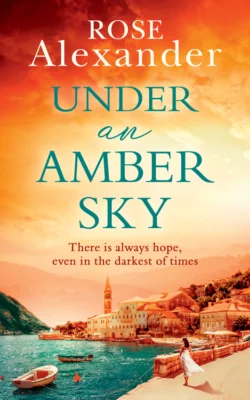Under an Amber Sky: A Gripping Emotional Page Turner You Won’t Be Able to Put Down

Rose Alexander
Тип: электронная книга
Жанр: Современная зарубежная литература
Язык: на английском языке
Стоимость: 613.23 ₽
Статус: В продаже
Издательство: HarperCollins
Дата публикации: 17.04.2024
Отзывы: Пока нет Добавить отзыв
О книге: ‘Under an Amber Sky is simply Sublime. I was cast under a spell and was completely enthralled. Definitely a feast of different emotions. I loved it!’ – Dash Fan, BloggerFrom the bestselling author of GARDEN OF STARS comes a heartwarming and emotional story of hope and second chances.When Sophie Taylor’s life falls apart, there is only one thing to do: escape and find a new one.Dragged to Montenegro by her best friend Anna, Sophie begins to see the light at the end of a very dark tunnel. But when she stumbles into an old, run-down house on the Bay of Kotor, she surprises even herself when she buys it.Surrounded by old furniture, left behind by the former inhabitants, Sophie becomes obsessed by a young Balkan couple when she discovers a bundle of letters from the 1940s in a broken roll-top desk. Letters that speak of great love, hope and a mystery Sophie can’t help but get drawn into.Days in Montenegro are nothing like she expected and as Sophie’s home begins to fill with a motley crew of lodgers, the house by the bay begins to breathe again. And for Sophie, life seems to be restarting. But letting go of the past is easier said than done…Praise for Under an Amber Sky:‘Sometimes a book just really resonates with you from the very first chapter and hits you where it matters the most and this was definitely the case with this second book from Rose Alexander.’ – Shaz’s Book Blog‘This is a heartwarming story, beautifully told and I have no hesitation recommending it.’ – Jill’s Book Cafe‘I adored Under an Amber Sky’ – Claire Reeder, NetGalley Reviewer‘5/5 stars – wow!’ – Megan Wood, NetGalley Reviewer‘Wonderful writing…a remarkably hopeful book’ – Kathleen Gray, NetGalley Reviewer‘What a really lovely book about love, grief, friendships and new beginnings. A must read.’ – Susan Anne Burton, NetGalley Reviewer‘Roller coaster of emotions. A great story.’ – AnneMarie Brear, Blogger‘Under an Amber Sky is beautifully written. Five stars. Poignant and heartfelt read. Perfect read for lovers of women′s literature, and who love adventure and emotional reads.’ – Dash Fan, Blogger